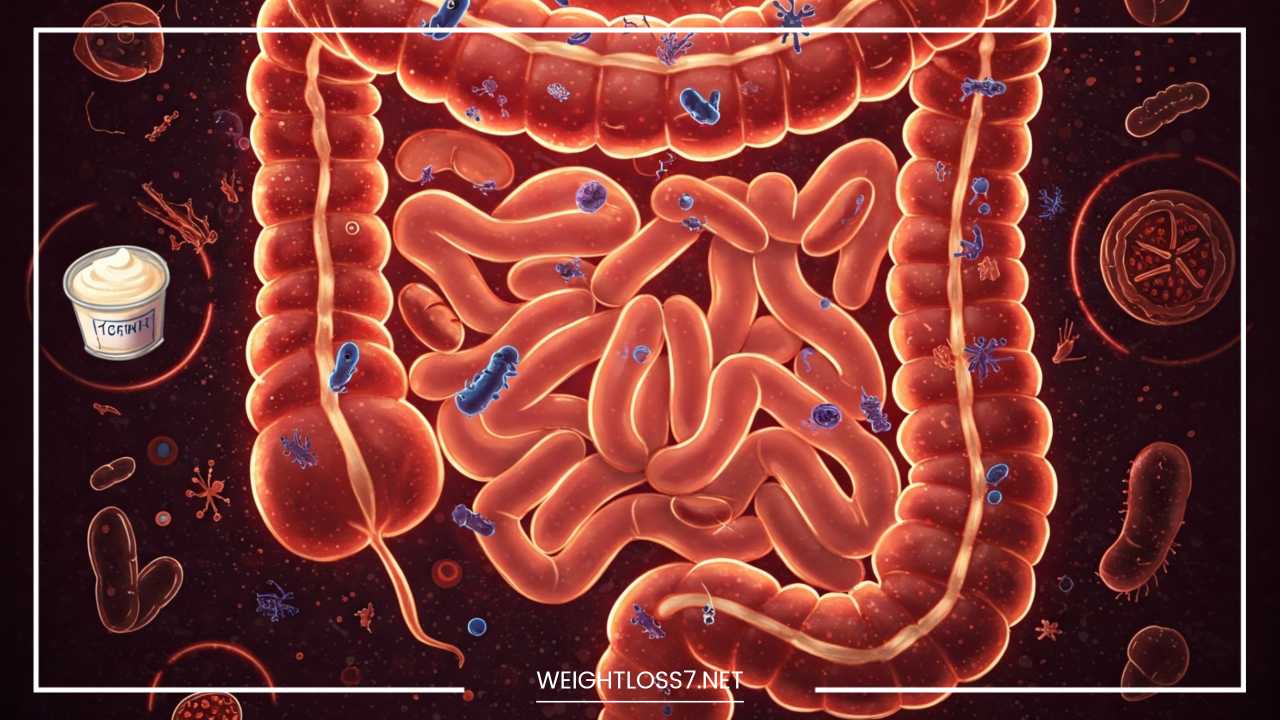Best Probiotics for Gut Health

Best Probiotics for Gut Health
The Unseen Army Within: Unveiling the Best Probiotics for Optimal Gut Health
In the intricate landscape of human health, the gut reigns supreme as a central hub, influencing everything from digestion and nutrient absorption to immunity, mood, and even cognitive function.
This bustling ecosystem, teeming with trillions of microorganisms collectively known as the gut microbiota, plays a pivotal role in our overall well-being.
Maintaining a harmonious balance within this microbial community is crucial, and that’s where the unsung heroes – probiotics – step into the spotlight.
Probiotics, defined by the World Health Organization as “live microorganisms which, when administered in adequate amounts, confer a health benefit on the host,” have garnered significant attention in recent years for their potential to positively impact gut health.
As research continues to unravel the complex interplay between our gut and our bodies, the demand for effective probiotic solutions has surged.
However, navigating the vast array of available options can be overwhelming. This comprehensive article delves deep into the world of probiotics, exploring the science behind their benefits, highlighting key strains and their specific roles, and providing guidance on choosing the best probiotics to cultivate a thriving gut microbiome and, ultimately, enhance your overall health.
The Gut Microbiome: A World Within
Before we delve into the specifics of probiotics, it’s essential to understand the intricate world they inhabit: the gut microbiome.
This diverse community of bacteria, fungi, viruses, and other microorganisms resides primarily in our large intestine. While some microbes can be detrimental to our health, the vast majority are beneficial, forming a symbiotic relationship with our bodies.
This unseen army plays a multitude of crucial roles. They aid in the digestion of complex carbohydrates that our own enzymes cannot break down, producing essential short-chain fatty acids (SCFAs) like butyrate, which serves as a primary energy source for colon cells and has anti-inflammatory properties.
The gut microbiota also plays a vital role in nutrient absorption, synthesizing certain vitamins like vitamin K and some B vitamins.
Furthermore, it acts as a crucial line of defense, training our immune system to distinguish between friend and foe and preventing the colonization of harmful pathogens.
The composition of our gut microbiome is highly individual and influenced by a myriad of factors, including genetics, diet, lifestyle, and antibiotic use.
An imbalance in this delicate ecosystem, known as dysbiosis, can lead to a range of health issues, including digestive disorders like irritable bowel syndrome (IBS) and inflammatory bowel disease (IBD), as well as potentially contributing to allergies, autoimmune diseases, and even mental health conditions.
Probiotics: Restoring Harmony to the Gut
Probiotics, when consumed in adequate amounts, work to restore and maintain a healthy balance within the gut microbiome. They can achieve this through various mechanisms:
- Competitive Exclusion: Probiotics compete with harmful bacteria for nutrients and attachment sites in the gut, effectively preventing their overgrowth.
- Production of Antimicrobial Substances: Some probiotic strains produce substances like bacteriocins and lactic acid, which can inhibit the growth of pathogenic bacteria.
- Strengthening the Gut Barrier: Probiotics can help to reinforce the tight junctions between cells lining the intestinal wall, reducing gut permeability and preventing the leakage of harmful substances into the bloodstream.
- Modulating the Immune System: Probiotics can interact with immune cells in the gut, influencing the production of cytokines and other signaling molecules, thereby helping to regulate the immune response.
- Producing Beneficial Metabolites: As mentioned earlier, probiotics contribute to the production of beneficial SCFAs, which have various health-promoting effects.
Why Probiotics Matter for Gut Health and Beyond
The benefits of a balanced gut microbiome, often supported by probiotic intake, extend far beyond just digestive health. Here are some key areas where probiotics can make a significant difference:
- Improved Digestion and Nutrient Absorption: Probiotics can aid in the breakdown of food, reduce bloating and gas, and enhance the absorption of essential nutrients. They can be particularly helpful for individuals experiencing lactose intolerance or difficulty digesting certain foods.
- Alleviation of Digestive Disorders: Research has shown that specific probiotic strains can be effective in managing symptoms of IBS, such as abdominal pain, bloating, and altered bowel habits. They can also play a role in the management of IBD, such as Crohn’s disease and ulcerative colitis, by reducing inflammation in the gut.
- Strengthening the Immune System: A significant portion of our immune system resides in the gut. Probiotics can help to bolster the immune system by promoting the growth of beneficial bacteria that interact with immune cells, enhancing the body’s ability to fight off infections.
- Reduction of Inflammation: Chronic inflammation is at the root of many diseases. Certain probiotic strains have demonstrated anti-inflammatory properties, which can contribute to overall health and potentially reduce the risk of chronic diseases.
- Support for Mental Health: The gut-brain axis is a complex communication network linking the gut and the brain. Emerging research suggests that probiotics may play a role in influencing mood, anxiety, and even cognitive function by modulating the gut microbiome and its signaling to the brain.
- Prevention and Treatment of Antibiotic-Associated Diarrhea: Antibiotics, while essential for treating bacterial infections, can disrupt the delicate balance of the gut microbiome, often leading to diarrhea. Certain probiotic strains, particularly Saccharomyces boulardii, have been shown to be effective in preventing and treating this common side effect.
- Potential Benefits for Other Conditions: Ongoing research is exploring the potential role of probiotics in various other health conditions, including allergies, eczema, vaginal health, and even weight management.
Navigating the Probiotic Landscape: Key Strains and Their Specific Benefits
The world of probiotics is vast and diverse, with numerous genera, species, and strains, each possessing unique characteristics and potential health benefits.
While general probiotic supplements can be beneficial for overall gut health, understanding the specific roles of different strains can help you choose a product tailored to your individual needs. Here are some of the most well-researched and commonly used probiotic strains:
Lactobacillus:
This is one of the most prevalent genera of probiotics found in fermented foods and supplements. Lactobacillus species are known for their ability to produce lactic acid, which helps to inhibit the growth of harmful bacteria. Some key Lactobacillus strains and their potential benefits include:
- Lactobacillus acidophilus: This widely studied strain is often found in yogurt and is known for its ability to aid in digestion, improve lactose intolerance, and potentially reduce cholesterol levels. It has also been shown to have immune-boosting properties.
- Lactobacillus rhamnosus GG: This is one of the most extensively researched probiotic strains, with strong evidence supporting its effectiveness in preventing and treating antibiotic-associated diarrhea, as well as managing symptoms of eczema and respiratory infections in children. It is also known for its ability to survive the harsh acidic environment of the stomach.
- Lactobacillus casei: This strain is often found in fermented dairy products and is known for its potential to improve digestion, reduce the risk of Clostridium difficile infection, and enhance the immune response. It may also have benefits for individuals with allergies.
- Lactobacillus plantarum: This versatile strain is found in various fermented foods and has demonstrated potential benefits for improving digestive symptoms, reducing bloating and gas, and supporting gut barrier function. It also exhibits antioxidant and anti-inflammatory properties.
- Lactobacillus reuteri: This strain is naturally found in the human gut and has been shown to have benefits for oral health, reducing Helicobacter pylori infection, and potentially improving infant colic. Certain strains of L. reuteri are also being investigated for their role in promoting the production of oxytocin, a hormone associated with feelings of well-being.
Bifidobacterium:
This genus is another major group of beneficial bacteria that reside primarily in the large intestine. Bifidobacterium species are known for their role in producing SCFAs, particularly butyrate, which is crucial for colon health. Some key Bifidobacterium strains and their potential benefits include:
- Bifidobacterium bifidum: This strain is commonly found in the infant gut and plays a vital role in the digestion of breast milk. In adults, it can help to improve digestion, support immune function, and potentially reduce symptoms of IBS.
- Bifidobacterium longum: This versatile strain has been shown to have benefits for reducing inflammation, improving gut barrier function, and potentially alleviating anxiety and stress through the gut-brain axis. It is also known for its ability to ferment a wide range of carbohydrates.
- Bifidobacterium breve: This strain is particularly important in infants, where it helps to break down complex sugars in breast milk. In adults, it may contribute to immune support and the prevention of certain infections.
- Bifidobacterium lactis (also sometimes referred to as Bifidobacterium animalis subsp. lactis): This robust strain is known for its ability to survive the harsh conditions of the digestive tract and has demonstrated benefits for improving digestion, enhancing immune function, and potentially reducing the frequency and severity of respiratory infections.
Saccharomyces boulardii:
Unlike the Lactobacillus and Bifidobacterium genera, Saccharomyces boulardii is a beneficial yeast, not a bacterium.
It has been extensively studied for its effectiveness in preventing and treating antibiotic-associated diarrhea, as well as traveler’s diarrhea. It works by neutralizing toxins produced by harmful bacteria and promoting gut barrier function.
Other Emerging Strains:
While the Lactobacillus and Bifidobacterium genera are the most well-researched, other probiotic strains are also gaining attention for their potential health benefits.
These include strains from the Streptococcus, Bacillus, and Enterococcus genera. Research in this area is constantly evolving, and new strains with specific health-promoting properties are continuously being discovered.
Choosing the Right Probiotic: A Personalized Approach
With the vast array of probiotic products available, choosing the right one can feel like a daunting task. It’s crucial to remember that the “best” probiotic is not a one-size-fits-all solution and depends on your individual health needs and goals.
Here are some key factors to consider when selecting a probiotic supplement:
- Identify Your Specific Health Concerns: Are you looking for general gut health support, or are you trying to address a specific issue like IBS, antibiotic-associated diarrhea, or immune support? Different strains have been shown to be more effective for certain conditions. Research the specific strains that have demonstrated benefits for your particular health concern.
- Consider the CFU Count: CFU stands for Colony Forming Units, which indicates the number of live and active microorganisms in a single dose. A higher CFU count generally means a more potent product, but the optimal dose can vary depending on the strain and the intended use. Look for products with a CFU count in the billions.
- Look for Strain Diversity: A diverse probiotic supplement containing multiple strains from different genera may offer broader benefits for overall gut health by targeting different areas of the gut and providing a wider range of beneficial effects.
- Check for Added Prebiotics: Prebiotics are non-digestible fibers that act as food for probiotics, helping them to thrive and multiply in the gut. Some probiotic supplements include prebiotics, which can enhance their effectiveness. Common prebiotics include inulin and fructooligosaccharides (FOS).
- Pay Attention to Quality and Reputation: Choose reputable brands that adhere to good manufacturing practices (GMP) and provide clear information about the strains and CFU count in their products. Look for products that are third-party tested for quality and purity.
- Consider the Delivery Method: Probiotics are available in various forms, including capsules, tablets, powders, and liquids. Choose a form that is convenient for you and ensures the survival of the live microorganisms through the digestive tract. Look for products with enteric coatings that protect the probiotics from stomach acid.
- Consult a Healthcare Professional: If you have any underlying health conditions or are unsure about which probiotic is right for you, it’s always best to consult with your doctor or a registered dietitian. They can help you assess your individual needs and recommend a suitable probiotic product and dosage.
Beyond Supplements: Food Sources of Probiotics
While probiotic supplements can be a convenient way to boost your gut health, many delicious and nutritious foods naturally contain beneficial bacteria. Incorporating these foods into your diet can be a great way to support your gut microbiome:
- Yogurt: Look for live and active cultures on the label. Greek yogurt is often a good source.
- Kefir: This fermented milk drink is similar to yogurt but often contains a wider variety of probiotic strains.
- Sauerkraut: Fermented cabbage is a traditional source of Lactobacillus bacteria. Choose raw, unpasteurized sauerkraut for the best probiotic benefits.
- Kimchi: This Korean fermented cabbage dish is packed with probiotics and flavor.
- Kombucha: This fermented tea drink has gained popularity for its potential health benefits, including its probiotic content.
- Miso: This Japanese fermented soybean paste is used in soups and other dishes and contains beneficial bacteria.
- Tempeh: This fermented soybean product is a good source of protein and probiotics.
Potential Side Effects and Precautions
While probiotics are generally considered safe for most healthy individuals, some people may experience mild and temporary side effects, such as gas, bloating, or digestive discomfort, especially when first starting to take them. These symptoms usually subside within a few days as the gut microbiome adjusts.
Individuals with weakened immune systems, such as those undergoing chemotherapy or with HIV/AIDS, should exercise caution and consult with their doctor before taking probiotic supplements. In rare cases, probiotics may lead to infections in these vulnerable populations.
It’s also important to note that not all probiotic products are created equal. The quality and effectiveness can vary significantly between brands and formulations. Always choose reputable brands and follow the recommended dosage instructions.
The Future of Probiotic Research
The field of probiotic research is rapidly evolving, with ongoing studies exploring the potential of specific strains for a wide range of health conditions.
Advances in microbiome sequencing technologies are allowing researchers to gain a deeper understanding of the complex interactions within the gut and identify novel probiotic strains with targeted benefits.
The future of probiotics holds immense promise for personalized approaches to gut health and the prevention and management of various diseases.
Final Thoughts: Cultivating a Thriving Inner Ecosystem
The gut microbiome is a vital component of our overall health and well-being, and probiotics play a crucial role in maintaining its delicate balance.
By understanding the science behind probiotics, recognizing the benefits of different strains, and making informed choices about supplementation and dietary intake, we can actively cultivate a thriving inner ecosystem.
Whether you’re seeking general gut health support, aiming to alleviate specific digestive issues, or looking to bolster your immune system, incorporating the right probiotics into your routine can be a powerful step towards optimal health and vitality.
Remember that a holistic approach, encompassing a balanced diet rich in prebiotic and probiotic foods, a healthy lifestyle, and potentially targeted probiotic supplementation under the guidance of a healthcare professional, is key to unlocking the full potential of these unseen allies within us.

















